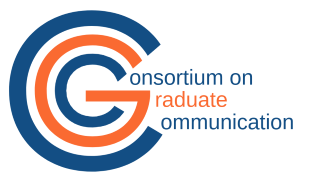How can we work to support the well-being of graduate students, while also strengthening their development as writers and scholars?
That was the question over fifty participants sought to discuss when they joined the first CGC Chat on January 29, 2021. Though the immediate context was the ongoing pandemic and all the challenges it poses for graduate students (and for those of us who work with them), research has consistently pointed to the importance of supporting graduate students in a holistic manner.
During the chat, we acknowledged challenges commonly faced by graduate students, such as academic pressure, loneliness, stress, financial concerns, and relationship difficulties, and how many of these challenges have been exacerbated by the pandemic. We also touched on some best practices to support graduate students’ holistic development during these uncertain times, including emphasizing process and progress, encouraging writers to seek support, normalizing that writing is difficult, providing ways to build self-efficacy, and fostering community.
In this time of social distancing, the best practice of fostering community seemed to resonate most with chat participants, who shared a range of ways they have helped graduate students connect. Through establishing accountability pairs and affinity groups, creating opportunities to discuss difficulties in the dissertation process, and using apps such as Slack to stay in touch, graduate communication specialists have provided students virtual spaces to connect and share challenges and accomplishments, even across time zones and continents.
Graduate communication specialists are cognizant that we are not trained–or hired–to be counselors. However, in our roles, we often learn about graduate students’ difficulties and help students access mental health services on our campuses when warranted. Additionally, we can attend to graduate student well-being in multiple ways without being counselors. For example, chat participants suggested many ways to integrate best practices into their communication classes and programming, including:
- Providing opportunities for frequent check-ins
- Increasing flexibility in grading and scheduling appointments
- Offering sessions focused on wellness
- Using reflective and expressive writing
- Engaging in open discussions of impostor syndrome
- Approaching student support more holistically
What other efforts to support student well-being do we–or could we–make make in our roles as graduate communication specialists? It’s a need that won’t be solved by a vaccine.
The next CGC chat will be on Friday, February 26 at 12pm EST. Joel Bloch will facilitate a discussion on the connection between translingualism and teaching graduate students. Please click here to register. We hope to see you there!
Linda Macrì (University of Maryland)
Lisa Russell-Pinson (University of North Carolina at Charlotte)


Comments are closed.